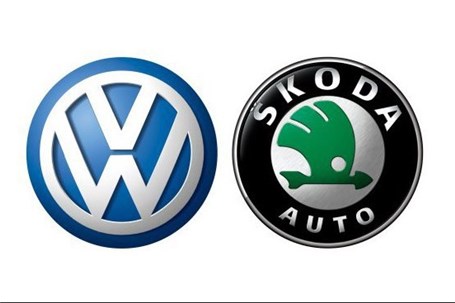
- Wednesday 07 October 2015 - 10:06:00
VW and Skoda reportedly eyeing Iran as sanctions lift
Asre Khodro: With the lifting of international sanctions against Iran, Volkswagen and its sister brand Skoda are considering entering the country, targeting its population of 78 million, according to a report from Reuters.
Reporting "Asre Khodro", Western investment is expected to start in the spring of 2016, as U.S. allies begin to ease economic sanctions that have so far prevented a large number of European countries from doing business in Iran. The lifting of sanctions has the potential to transform the automotive sector as well, development of which has been stunted in recent decades. More importantly, the opening of Iran to foreign automakers has the potential to alleviate woes created by the ups and downs in China and South America, from which Volkswagen has suffered in recent months.
"It is still too early to say which product we could use to go in with but of course we see the potential," VW brand R&D chief Heinz-Jakob Neusser told Reuters this week at the Frankfurt motor show. "Iran is a very interesting market with great opportunities," he added, indicating that VW Group would conclude its analysis of the market by the end of 2015.
VW's Czech division Skoda, which has seen impressive growth in a number of markets after being rescued from obscurity in the early 1990s, is also eyeing Iran.
"If the conditions develop right, this will be a market where we can fit in quite well with our offerings," Skoda R&D chief Frank Welsch told Reuters.
Volkswagen was the first western automaker to enter China in 1984, years before others dipped their toe into that market, creating a joint venture with SAIC and producing a number of models like the Santana sedan. Skoda is represented in China as well, and the VW Group has also been a pioneer in South America, creating plants for local car production and fielding models suited to that market.
Iran, for its part, has a fairly limited passenger car market owing to a number of factors, with just about the only western cars produced there being relatively outdated versions of Peugeots and Renaults sold under local marques such as Iran Khodro. One of the most popular cars in Iran happens to be a heavily updated version of thePeugeot 405, a model that dates back to the 1980s, though a number of later models are available as well. What Iran does have in abundance, as many analysts have noted, is a young, educated, upwardly mobile population, one cognizant of western brands.
If VW and Skoda do enter Iran in the near future, it remains to be seen which models will be offered there. The most obvious short-term move would be ramping up production in China to satisfy demand there, as VW has no shortage of modestly priced vehicles. A number of Skoda models are built in China as well.
Source: autoweek.com
- Iran automotive market
Sout Korea’s auto exports down 1.6% in Feb.
Renault to Return to Iran: Deputy Minister
Renault to stay in Iran despite US sanctions
M&M plans SUV foray into Iran
Automotive Industry in Iran, a short review
Automakers are forced to implement new car standards
Removing some price ranges from the car market
Renault Lead the Way, Nissan Climb
An End to Car Importing Suspension
The Renault partnership in Russia changes the investment location in Iran
No Cherry-Picking, All Low-Quality Cars Have to Go
Details of new rules for importing car to Iran
European carmakers on the road back to Iran after nuclear deal
Renault has reached to the top market for imported cars in Iran
Iran is the place for peugeot to jump the platform
What Future for Iran Car Market?
France’s Peugeot, Total Looking for Stronger Presence in Iran
French Leverage in Iran Auto Industry
Iran Carmakers Obliged to Offer 2-Year Guarantees
Over 13 million cars in use in Iran
Renault Imports to Iran Increase 110%
VW's Seat considers selling cars in Iran - CEO
Iran to Finalize Deal with Renault in Weeks: Minister
Iran Khodro Group Retains 39% Market Share
Iran stars as Renault powers to record 2016 sales
Renault Duster May Be Obsolete
VW to made CNG cars for Iran
Iran has potential to be top-10 auto market by 2020
Renault Sales in Iran Up by 127% in September
Volkswagen and Skoda look into Iran market entry
Renault Looks to Grow Automotive Presence in Iran
Iran’s Car Market: Heading High or Low?
Peugeot targets 150,000 vehicle sales in Iran in second half
A positive political environment has helped Iran’s car market
Peugeot to try for making Iran its manufacturing hub in Middle East, Africa
Germany’s Bavaria to dispatch trade delegation to Iran on Sept. 4
No request to raise the automobile's price is sound
Record Registrations for Groupe Renault in H1 2016
Automotive Targets Highlighted
How to seize Iran’s automotive opportunities
Renault’s Iranian market share rises 7-fold in post-sanction era
VW In Iran
Rouhani vows to privatize Iran’s car industry
Japanese traders seek new opportunities in Iran
Peugeot and Renault in pole position to enter Iran’s car market
Iran Opening Up, The New Land Of Opportunity
Picking winners in the race to Iran
Iran important market for European businesses: expert
Azerbaijan not impressed by car opportunities of Iran
Impact of Iran deal on the automotive market
European car makers strives to regain share in Iran's auto market
Iran automotive market ‘on edge to take off’
Controversial Vehicle Price Surge in Iran
IKCO management handed over to consortium of non-governmental shareholders
Iran's government approved car import after four years
$2 Billion Aid Package to Bolster Automotive Industry
Renault sales decline 6.7% in first half of 2019
FIAT cars will be manufactured in Salafchegan, Iran
Car, mobile price fluctuations in Iran puzzling people
IKCO, Azad University Sign R&D Agreement
When will Azerbaijan start producing Peugeot 207?
Iran Annual Auto Output Report: 2018-19
Automotive Industry has exceeded the targets with “Automechanika Istanbul” which the World's 3rd Largest Fair!
Sout Korea’s auto exports down 1.6% in Feb.
Renault to Return to Iran: Deputy Minister
Chery's luxury brand will soon be on the market
Warm start for arrizo6 in Ahwaz







